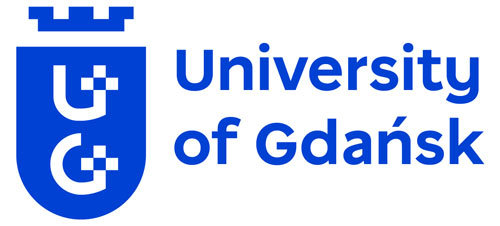Equally important to doing science is communicating it. Talking to people who are ‘in our field’ during scientific meeting offers an extra opportunity to grow! Not only are we moved to think how to put our research in a larger context (which we often miss when dwelling into specific question and experimental details), but we also make a room to auto-review what we have done so far and think how the results fit together and what is missing. A feedback received from other scientists, such as, for example, novel ways to address our question or an unthought explanations of our results is extremely precious and motivating. On top of that, such meetings are an outstanding opportunity for networking and finding novel collaborators.
Together with Alicja Dziadosz ( as ‘Alas Team’) we joined the 4-day 1st FEBS Redox Medicine Workshop in Luso, Portugal (22 –26 May 2023). This FEBS advanced course hosted both prominent senior researchers in the field of Redox Biology as well as young pre- and postdoctoral researchers selected from all over the world. The program has been tailored to promote an informal and relaxed environment in which science, scientific careers and personnel experiences as a scientist in the XXIst century were discussed. We had a chance to present our data and thoughts both in the form of oral presentation, as well as during poster session. Everyone from the Redox field is familiar with the transcription factor Nrf2 that we work with and we got a really nice feedback, especially concerning suggestions on mass-spec-based approaches to differentiate the Nrf2 isoforms. The meeting was held in a beautiful hotel in a village surrounded by Buçaco National Forest, hosting a number of endemic and exotic centenarian trees introduced by Portuguese mariners during the Age of Discovery as well as the Fonte Fria – an enchanting cascade fountain. It is a ‘double win’ when a good meeting is held in such a marvelous surrounding!
Short after this workshop I went to Vienna for the Annual Meeting of The Society for Free Radical Research Europe (SFRR, 06-09 June 2023). This meeting was totally different – it was a huge conference with hundreds of participants. Nevertheless, organisers took care of Early Career Scientist (ECS: Students, Postdocs and Assistant Professors) and on the first evening conducted a Meet-the-Professor session followed by the meet-and greet event for ERC only, where we had a chance to do some networking in a funny way. Poster sessions were held in a form of digital posters, divided thematically and displayed on screens one by one. Each speaker had three minutes for a presentation. Such a short time limit made me squeeze an essence from what, how and why we study. That is good when doing a science pitch, but for the posters I still prefer the classical form, where you are not constrained by time and can chat freely on your work. The special guest of the Vienna meeting was a Japanese professor, Masayuki Yamamoto, whose group have been studying molecular, structural and contextual aspects of the Nrf2-Keap1 system for years. He gave a comprehensive lecture summing up the history of Nrf2-Keap1 system discoveries. Again I received an amazing feedback and brought to Gdansk new ideas, connections and inspiration!
Alicja Sznarkowska
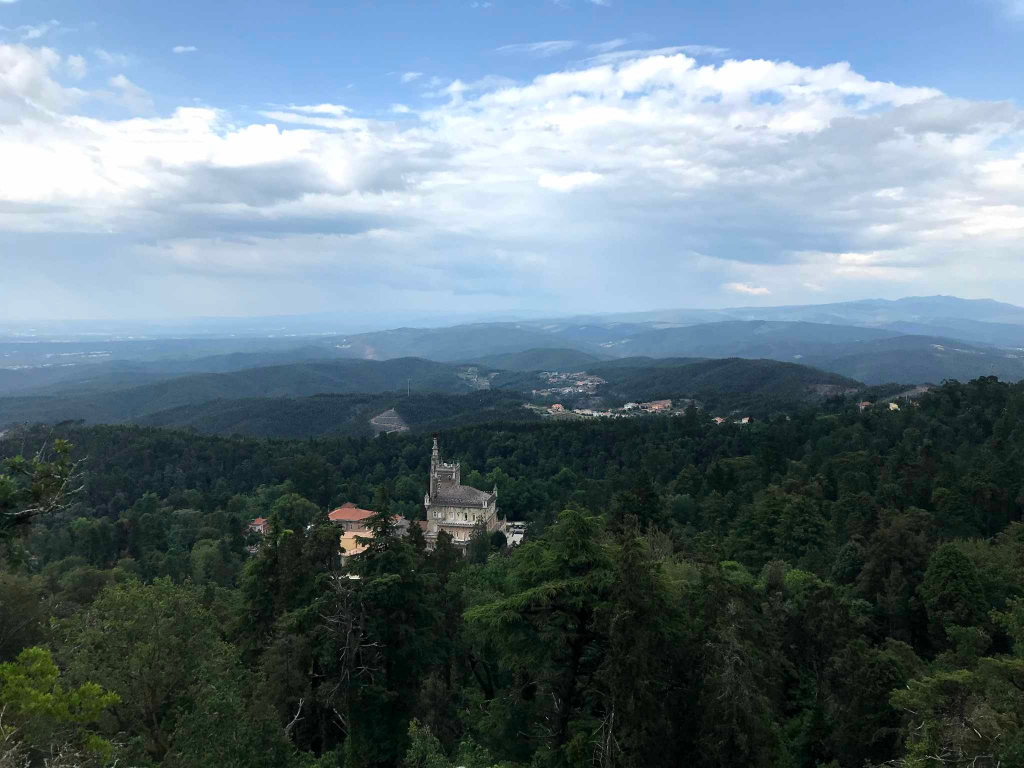 View of the Buçaco National Forest View of the Buçaco National Forest |
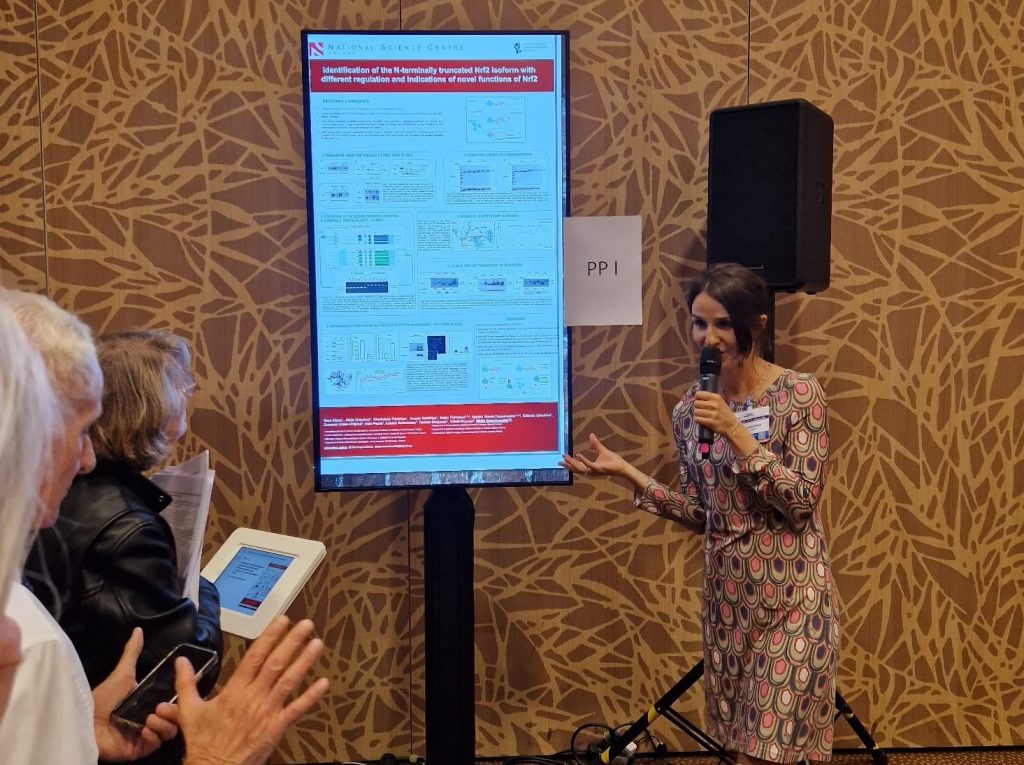 Digital poster presentation in Vienna Digital poster presentation in Vienna |
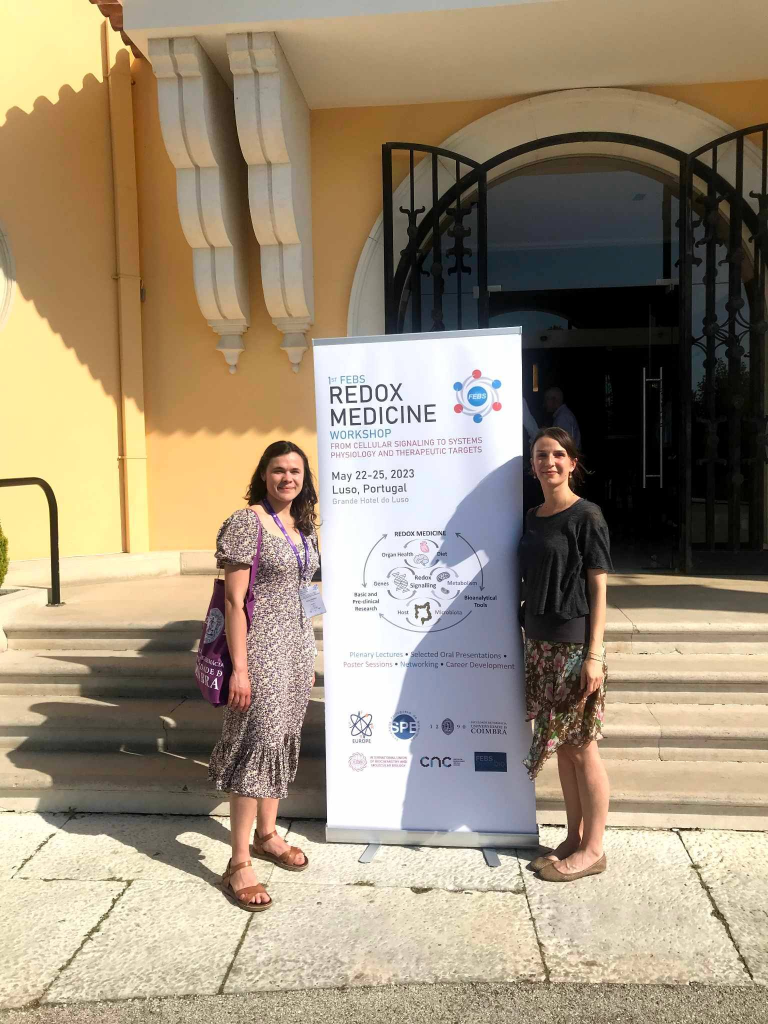 In front of the workshop Venue at Luso In front of the workshop Venue at Luso |
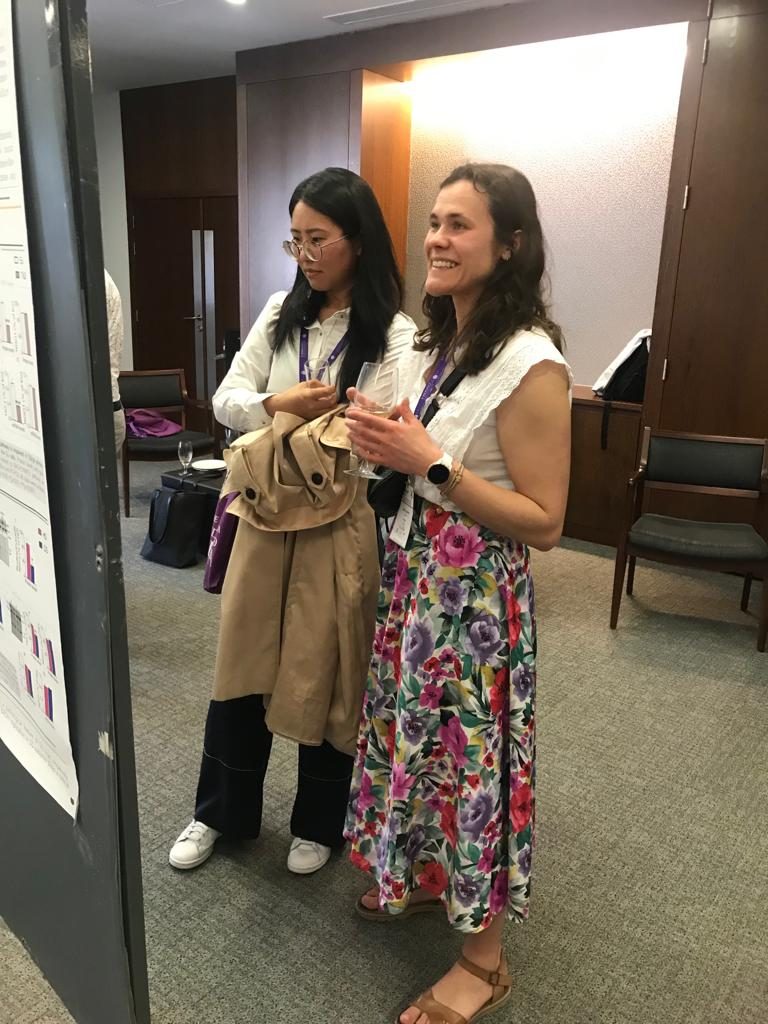 Poster session during workshop in Luso Poster session during workshop in Luso |

